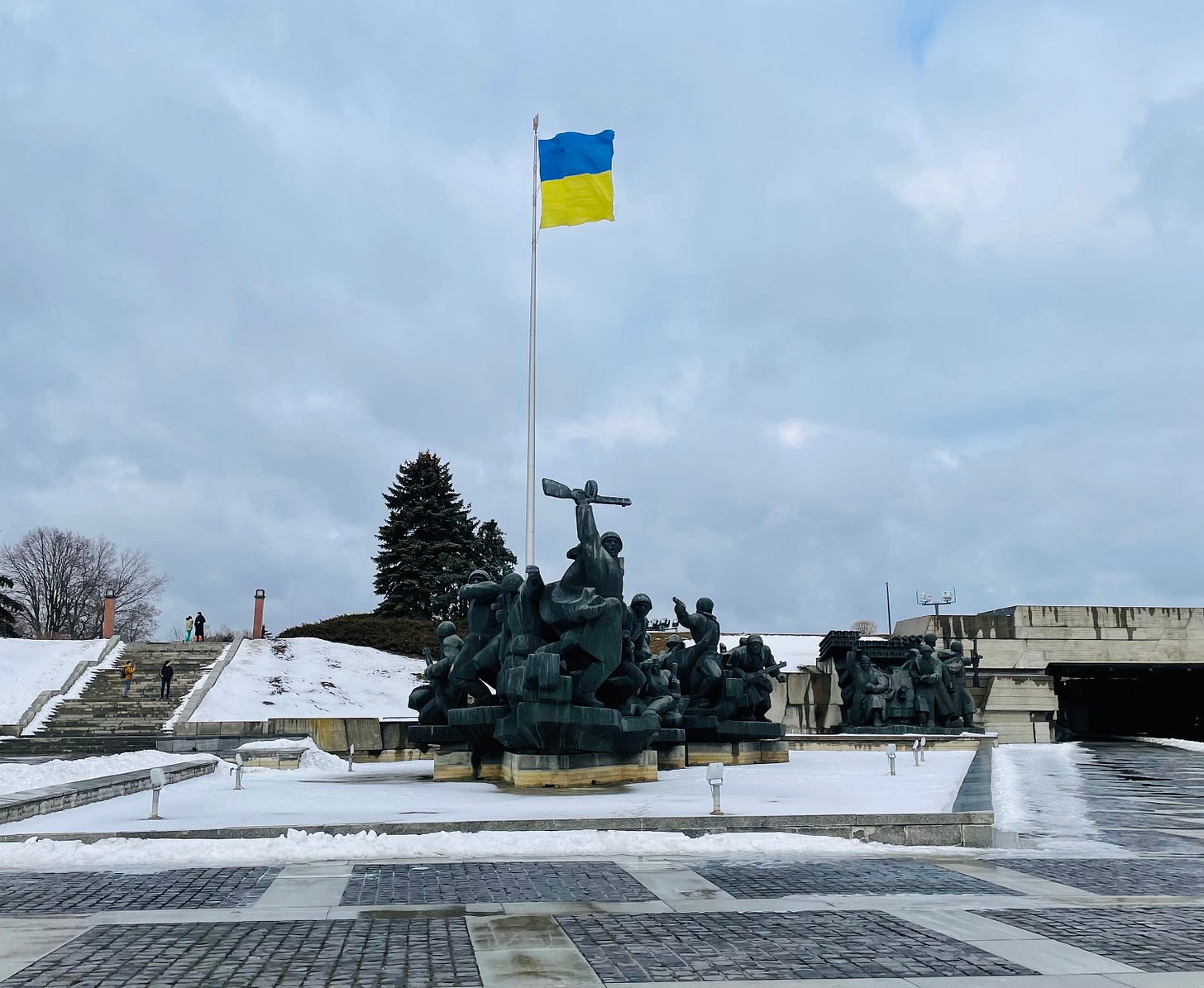Ukraine on edge
Berlin talks go nowhere, US warns Russia might make a move next week, what to read to get a deeper understanding.
So much news today out of the increasingly more tense situation surrounding Ukraine (otherwise known as will Putin be stupid enough to actually invade), rather than writing a lot (it’s been a long week), I would like to share with you what I have been reading to help me better understand the situation from all sides. There is a lot of excellent journalism being produced at the moment.
Today we learned the Normandy format talks in Berlin lasted nine hours but basically made no progress. Russia confirmed this. Minsk is essentially a non-starter for Kyiv because it would mean negotiating with the separatists and Russia would play a mediator role while Ukraine obviously sees Russia as an aggressor and those eastern territories as still technically part of Ukraine.
The problem, of course, is the DNR and LNR areas are, in essence, long gone (my words alone). They are not going to be re-united with Ukraine, but the Ukrainian government cannot say this out loud without losing face.
Ukrainian journalist Sergey Rudenko noted today that if Russia really wanted to, it would have recognised the DNR and LNR long ago, similarly to how it handled its annexation of Crimea. Instead, the DNR and LNR remain economic wastelands completely dependent on Moscow that serve as a lever Russia can use against Ukraine.
But the situation isn’t sustainable. At some point, Russia is going to have to integrate them. And if Kyiv recognises those areas of eastern Ukraine are lost forever, which president and government want to be responsible for handing over a chunk of the country’s territory after 14,000 Ukrainians lost their lives in the ongoing war there? None of course. So it is a completely stuck situation until one side wins, one way or the other (how you define winning, I am not sure).
What else? This evening the US government came out and said it has changed its assessment based on new information and now expects Russia could launch an attack on Ukraine before the end of the Olympics, meaning next week. They did also say they do not believe Putin has made up his mind yet (had to laugh at that one, of course he hasn’t). My immediate thought was I hope they gave Kyiv a heads up because this has the potential to cause panic which the Ukrainian government will naturally want and need to avoid. Israel is pulling its diplmat families out. Israel usually doesn’t have bad intelligence, particularly when it comes to Russia and Ukraine. Julia Ioffe’s take on why Biden is doing this now is the best I’ve seen:


Important to remember German chancellor Scholz is scheduled to visit Kyiv on Monday and Moscow on Tuesday, although I haven’t seen that reconfirmed today, and there was speculation Scholz doesn’t have any new diplomatic offers to bring with him. Austria reiterated in an interview with foreign minister Schallenberg today that it would be firm in supporting EU sanctions against Russia and Nord Stream 2 would be on the table in the event of… Let’s see.

It definitely feels like things are getting scarier, as hard as it is for me to write these words because when you are in Kyiv (I know I have said this a million times this week), it simply does not feel like there is any impending danger or doom or risk of invasion. On the outside, everything looks perfectly normal (ok, perhaps fewer foreign tourists than usual) and people look happy.
I also took a quick look at Russian-army-on-the-move TikTok which you’ve been seeing non-stop on Twitter, and I suspect a lot of it is intentional posting by Russia to keep the temperature up. Not that the tanks aren’t real. They are, but if Russia didn’t want us all to see them, we would not be seeing them. The videos are meant to be seen by both a domestic audience (stir up patriotism) and westerners on Twitter (reminder that Putin means business!).
So, what to read. In no particular order but all worth your time:
Jeremy Cliffe on how Russia isn’t able to offer former Soviet countries a bright future in the Russian sphere of influence so it resorts to military might instead.


Olga Tokariuk from Kyiv on how things can look totally normal even while residents are making preparations for the worst case scenario, how Ukrainians have learned to live with heightened risk for years now.


Yaroslav Trofimov from Chernihiv, just near the Belarus border, and along the highway Russian troops would use to reach Kyiv should they decide to attack.
I just looked at a map of Ukraine and now had a minor heart attack when I saw how close we were in the Chernobyl zone to the army exercises in Belarus the other day. Here is another map of the area. When I was in Chernobyl this week I honestly didn’t realise how close we were to Belarus. Also of interest, when I had that crazy tour of the Yanukovich palace, my guide said he thought there might be some “shooting around Chernihiv” but not much else. For what it’s worth.


Finally, Michael Weiss spent the past week in Kyiv and this is his report after meeting many officials and talking with experts and diplomats alike. He also describes the mood in Kyiv, the impression as you move around the city that everything looks and feels so normal.


One last recommendation: I really, really enjoyed this podcast conversation with reporter Evan Osnos on China and the Olympics. It is really a concise history of China over the past few decades in under 30 minutes. Well worth your time.
Thank you so much for reading! It has been a lot of words this week; will return to my normal morning schedule from Monday. Have a great weekend!




